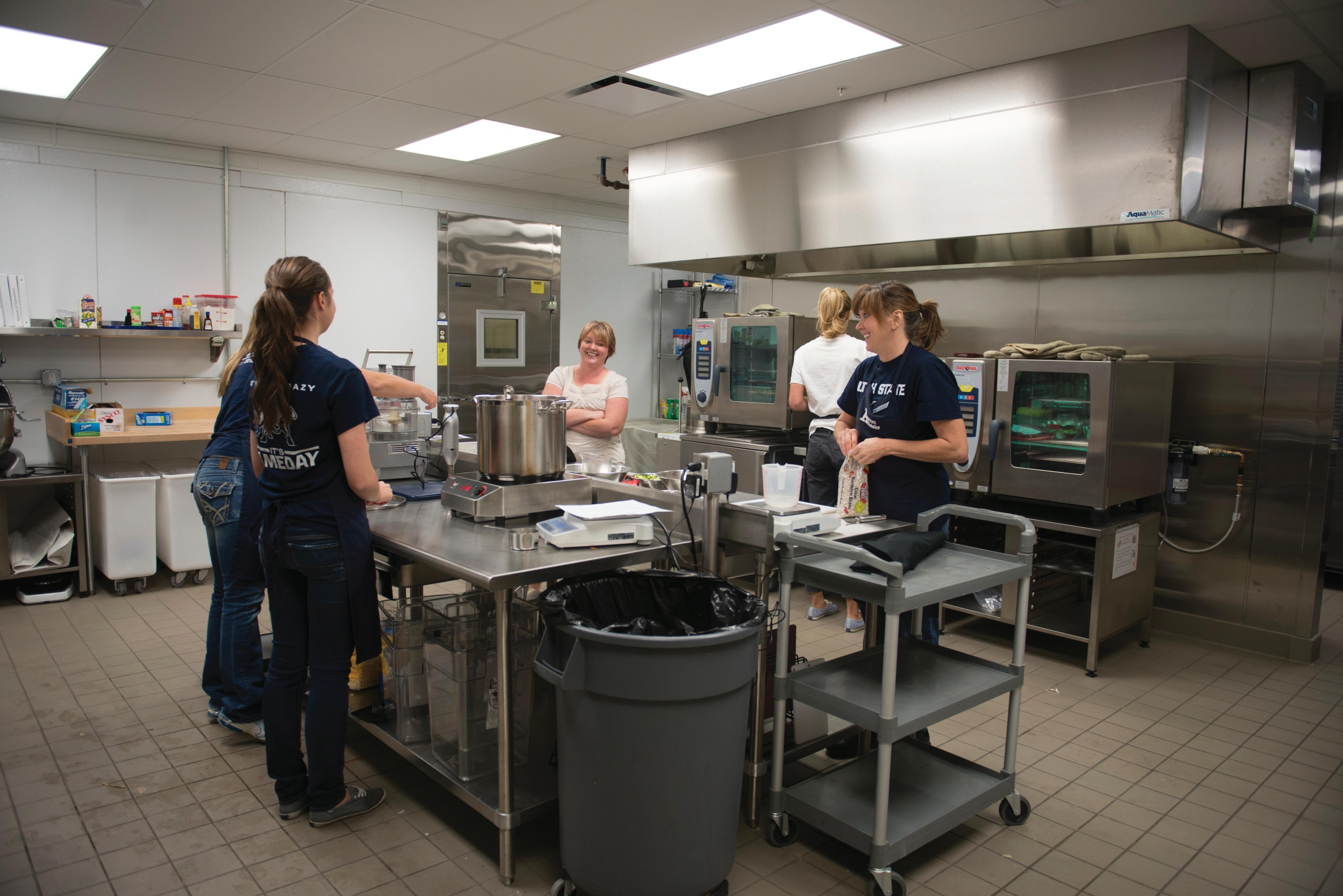Soup Connection aims to educate students on healthy eating habits
The local food movement in recent years is thought to have many positive benefits – supporting local economies and reducing the use of natural resources in transport, to name a few. But this practice does not come without its difficulties.
How, for example, can residents of Cache Valley emphasize eating locally-grown produce when the area’s land is frozen and unfarmable for such a large portion of the year?
“We know that people thrive when they eat local foods, and they eat those foods when they are available,” said Rebecca Charlton, the director of USU’s coordinated dietetics program. “The problem is, here in Cache Valley we have a very short season. Produce is extremely abundant for a short time, but then it all dries up.”
Dietetic students at USU have come up with a solution to this predicament, offering students and residents of Cache Valley a way to consume locally-grown produce throughout the year.
The student-run Soup Connection, which began in the spring of 2012, was started as a way to offer dietetic students hands-on training in their studies while also utilizing a kitchen in USU’s Utah Science Technology and Research building to provide the community with nutrient-rich and preservative-free soups made with locally grown produce.
Based on the concepts in the book “The Healthy Kitchen,” Charlton said the program benefits not only students participating in the soup’s production, but also all those who enjoy the finished product.
“It really comes from the idea that with good food comes the motivation to eat well,” Charlton said. “We are trying to encourage nutritious eating by creating a product that is both delicious and nutritious.”
Abbey Carlson, who graduated from USU’s dietetics program and now works as a supervisor over the Soup Connection program, said students in the program are given the chance to implement the things they have learned in the classroom while gaining important experience, from recipe modification to marketing their products, for professionals in their field.
“It helps them turn all this nutrition-based information into how to actually make something that tastes good and is full of nutrients,” Carlson said. “It’s a cool application for what they learn in the classroom.”
To preserve the highest possible level of nutrients in their soups, students in the Soup Connection are taught how to most effectively prepare various produce and how to flavor foods with herbs and spices rather than salt and other preservatives, Charlton said.
“Every ingredient is in its plainest and simplest form,” she said.
The soup is made available to community members through two main avenues; distribution through Soup Connection’s Community Supported Agriculture program and through sales at Aggie Ice Cream on Tuesday, Wednesday and Friday each week.
The CSA distribution, which Carlson said will begin in January, was modeled after other successful CSA programs and has grown from 25 shares sold last year to a projected 100 shares to be offered this year.
“Traditionally, CSA works by people in the community buying a share of a farmer’s land, and then they get produce from that section of land when it is time to harvest,” Carlson said. “We are doing the same thing, but we are selling soup.”
Participants who purchase a Soup Connection CSA share receive one to two quarts of soup and a loaf of artisan bread each week for eight consecutive weeks, Carlson said.
As a way to educate their customers on the benefits of nutritious eating and supporting local agriculture, Carlson said students in the Soup Connection will soon begin distributing an informational flyer with each soup purchase.
Dietetic student Kathryn Harwood, who recently finished her five-week work rotation at the Soup Connection, said the things she learned in the program were valuable to her education.
“It’s one thing to ask people to eat better or improve their diet, but it’s another thing to be able to relate to them and know how to cook to teach them something they can actually use,” Harwood said.
Those interested in the Soup Connection can visit its Food Day booth on Oct. 24 in The Hub in USU’s Taggart Student Center.

